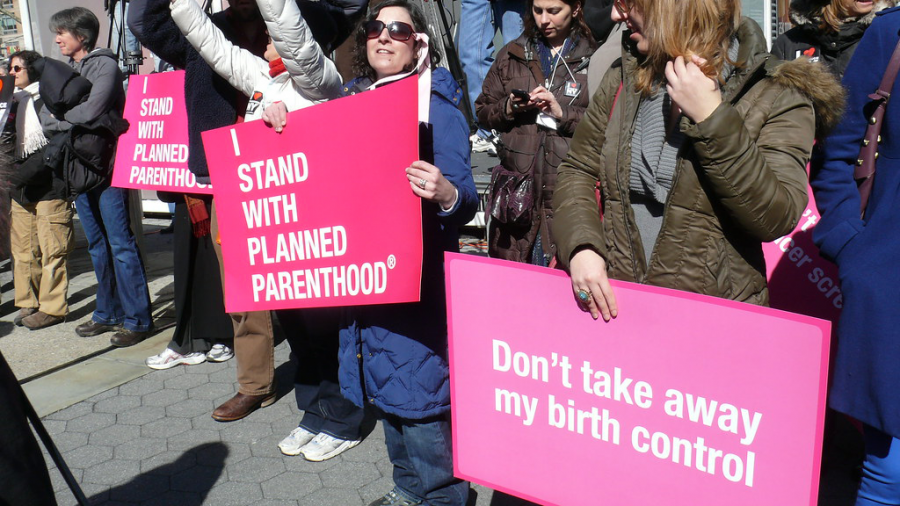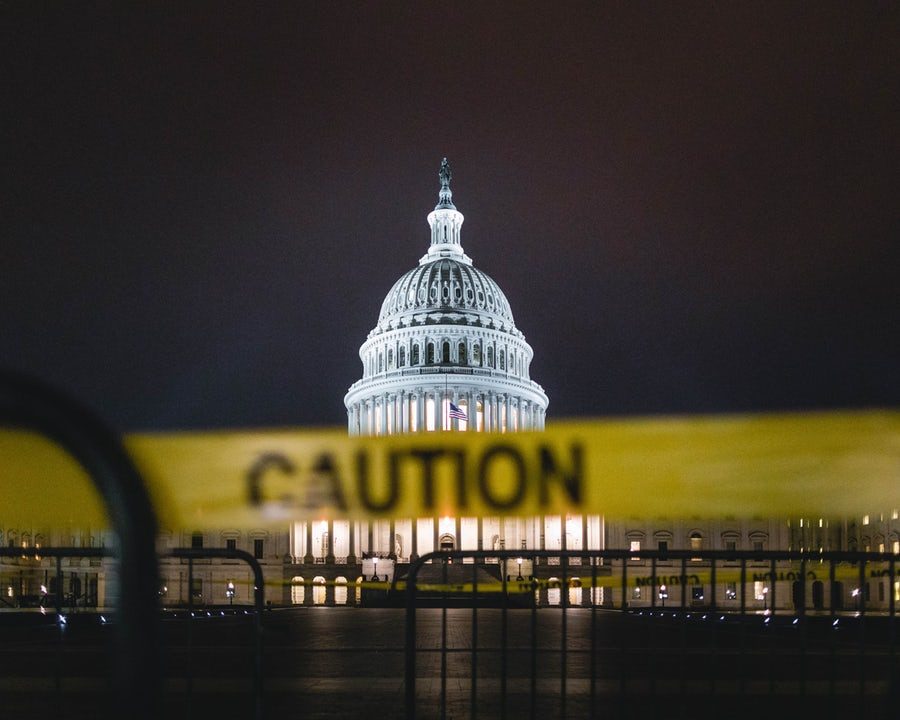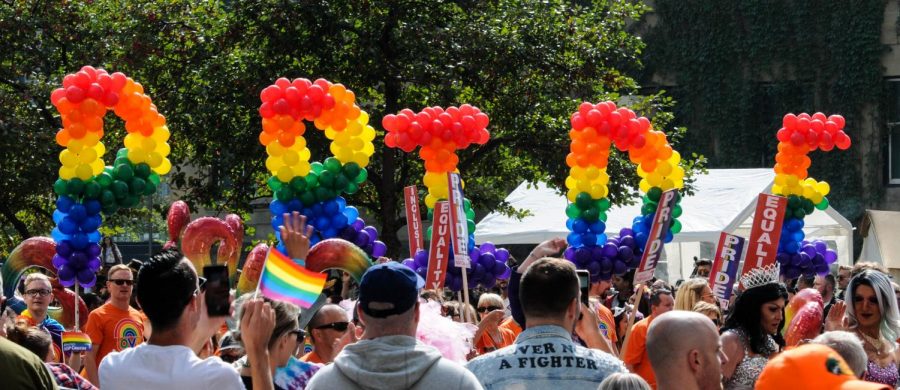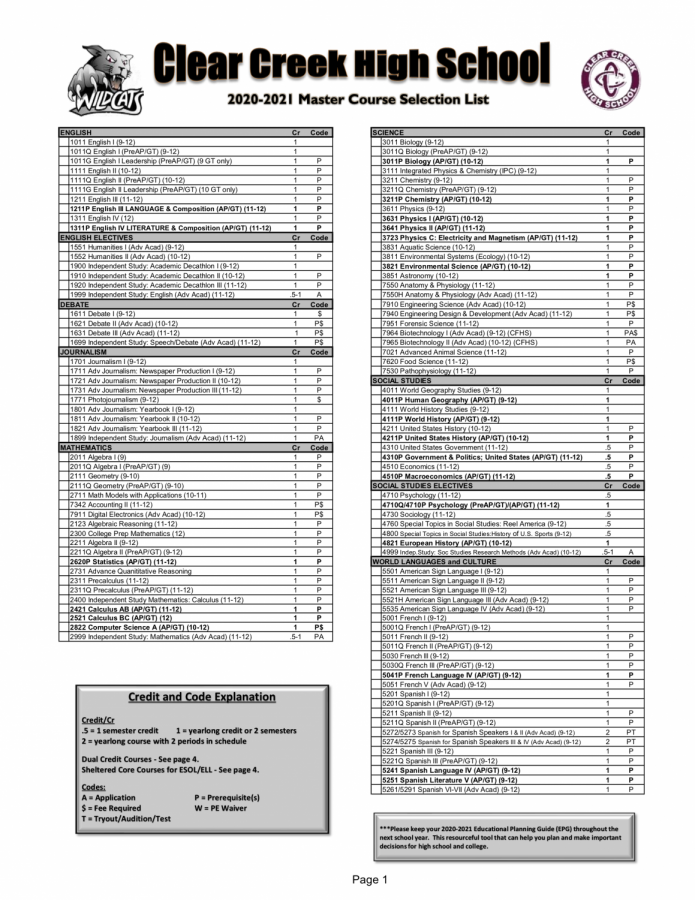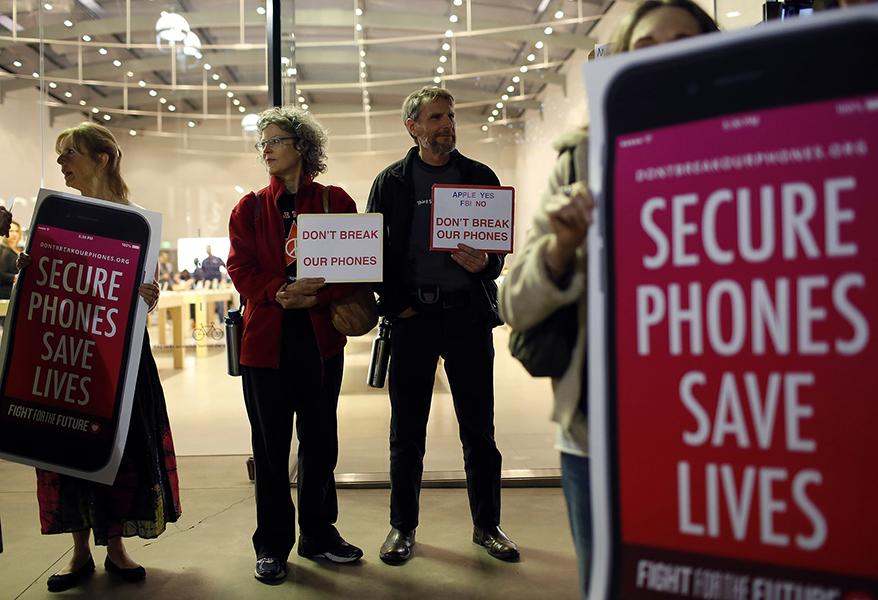Apple refuses to unlock encrypted phone for FBI
Protesters, from left, Sandra Bell, Victoria Best, and Charles Fredricks, hold signs in support of Apple store in Santa Monica, Calif., on Tuesday, Feb. 23, 2016. Rallies were planned at Apple stores across the country to support the company's refusal to help the FBI access the cell phone of a gunman who took part in the killings of 14 people at the Inland Regional Center in San Bernardino. (Katie Falkenberg/Los Angeles Times/TNS)
May 5, 2016
Apple’s case against the Federal Bureau of Investigation officially ended March 30, 2016. This argument was due to the FBI’s demand for Apple to extract data from one of their products. The product was seized by the DEA and the FBI and handed over to Apple when they were unable to overcome the security measures of the phone. The product was a phone formerly owned by Syed Rizwan, one of the two shooters that carried out the San Bernardino shooting.
The FBI had asked Apple to make a customized version of their security system for the iPhone to unlock the encrypted evidence. Apple then released comments about why they are unable to access the phone.
“The FBI had asked a court to order us to give them something we don’t have. To create an operating system that does not exist- that would be dangerous. They asked for a backdoor to the phone, specifically to build a software tool that could break the encryption system that protects personal knowledge on every phone,” Apple stated.
James Comey, representative for the FBI, followed Apple’s comment by his view on the possible consequences from the broken encryption.
“My agency’s battle with Apple over privacy can be described as one of the hardest questions I’ve seen between government [and a company]. The only way forward would be to engage conversation and negotiation to find a proper balance between security and privacy,” Comey said.
According to a New York Times/CBS News poll, 50 percent of voters said Apple should help the government unlock the phone, while 45 percent opposed. The poll provided evidence showing that people’s attitudes toward government surveillance has relaxed.
After Apple and the FBI testified for over five and a half hours, there were no definite conclusions. However, the court case gave both sides time to present their case more clearly. Apple’s general counselor, Bruce Sewell, challenged FBI’s director James Comey at the hearing that was seen by the House Judiciary.
“Hackers and cyber criminals could use this to tamper with privacy and personal safety. Some of you might have one of our products on your person right now, and when you think about that, there’s probably more material stored on that than a thief could steal by robbing your house,” Sewell said.
He then continued to show the cooperation Apple had given to the FBI.
“We have a team of dedicated professionals that are on call 24 hours a day, seven days a week, 365 days a year to assist law enforcement. When the FBI came to us during the aftermath of the San Bernardino attacks, we gave all the evidence we had related to their enquiry. And we went beyond that by making Apple engineers available to advise them on a number of additional investigative options,” he continued.
Comey responded with a simple reason for wanting the thorough search.
“Fourteen people were slaughtered and many more had their lives and bodies ruined,” Comey said, speaking of the murder committed by Rizwan. “We owe them a thorough and professional investigation under law. That’s what this was. The American people should expect nothing less from the FBI. We are simply asking for access to a single device. We don’t want to break anyone’s encryption or set a master key loose on the land,” he said.
Apple explains the possible consequences through their filing of the case.
“This is not a case about one single phone. This is about the department of Justice and the FBI seeking through the courts a dangerous power that congress and the American people have withheld: an ability to force Apple to undermine the basic security and privacy policies of hundreds of millions of people around the globe. The FBI has asked Apple to weaken the security of our products. Hackers and cyber criminals could use this to wreak havoc on our privacy and personal safety. It would set a dangerous precedent for government disturbance on citizen’s privacy and safety,” The file stated.
On April 22, Apple was to attend a federal court hearing, but new material from the FBI said they may be able to unlock the phone with a method that will not require Apple’s consent has postponed this hearing. This unnamed third party showed the FBI a new alternative and was paid a one time flat free for the solution.
“For Apple, this proved that the FBI should be trying harder, rather than asking Apple to undermine security protections. For the FBI, this has certainly been an embarrassment to have gone to this effort when there was another route,” said Susan Landau, an expert at Worcester Polytechnic Institute.
On March 29, FBI officially announced the no longer needed Apple’s help and ended the case. The third party who helped the Justice Department will not release their name or any personal details at this time. The Department of Justice also released a statement that said they have no current plans to continue using this method.
“We’re only talking about this phone right now. We refuse to say that this would have anything more to do with other phones. We generally work with state and law enforcement officials around the country,” They said.
The FBI has yet to say what they have been able to find on the phone while the public has been left to question whether they will find anything valuable, such as further attacks that have been planned or their communication. Many experts on security and privacy have spoken to the FBI about unveiling the exposed data to Apple so they can mend the software.




